If you’re searching for information about anorexia for yourself or someone you care about, you might come across the label “pro-ana.” That term is short for “pro-anorexia.”
Pro-ana communities treat anorexia as a chosen lifestyle rather than a health condition. Many of these groups have devoted followers who exchange strategies for extreme calorie restriction and other harmful weight-loss behaviors.
Medical professionals generally view these behaviors as dangerous because they can worsen disordered eating and lead to serious health problems.
Pro-ana forums also often share “thinspiration” (or “thinspo”) images and messages that encourage a poor body image. If you’re thinking about joining a pro-ana group, read on for safer alternatives and guidance.

Why pro-ana communities are dangerous
Pro-ana sites commonly draw people with anorexia who share disordered eating practices and negative feelings about their bodies.
Users may find that the material in these groups reinforces unhealthy eating behaviors and outlooks, offering a sense of familiarity or comfort.
Although you might connect with others who feel the same way, it’s crucial to recognize that anorexia is not a lifestyle to admire. Anorexia nervosa is an eating disorder characterized by attempts to control weight and body shape through food restriction.
Some individuals may induce vomiting or misuse laxatives, diuretics, enemas, or other products to shed pounds.
Others might engage in compulsive exercise to burn off calories. This disorder can severely affect both physical and mental health as well as overall functioning.
Pro-ana content is often created by people with eating disorders who lack medical training. They may portray extreme thinness as a deliberate, desirable choice.
These platforms can include triggers that exacerbate eating disorders, such as:
- displaying images of dangerously thin bodies
- promoting a negative perception of one’s body
- sharing methods for losing weight that are harmful
- advising ways to avoid seeking professional help
- encouraging people without eating disorders to adopt disordered behaviors
Finding constructive support
While pro-ana groups can feel supportive, they rarely lead to healthier outcomes for body and mind.
There are numerous local and online communities designed to help people work toward goals like:
- preserving their overall health
- developing balanced eating patterns
- healing their relationship with food
Below are organizations and groups that offer constructive support for people dealing with disordered eating:
Overeaters Anonymous is a long-standing fellowship that assists people with issues around food and body image, from overeating to restrictive eating to bulimia and excessive exercise. Local chapters exist throughout the United States and internationally. The program uses a 12-step model.
The National Eating Disorders Association (NEDA) connects people to a variety of support options. You can call their helpline at 1-800-931-2237 or receive crisis help by texting 741741. NEDA also offers online chat with volunteers and runs support groups in many locations.
The National Association of Anorexia Nervosa and Associated Disorders (ANAD) maintains a searchable roster of support groups on its website. ANAD also lists dietitians, nutritionists, treatment centers, dentists, physicians, psychiatrists, and yoga instructors who have experience helping people with eating disorders.
How to choose a safe support group
If you’re uncertain whether a group is pro-ana or genuinely supportive, use these guidelines:
- Avoid communities that label themselves “pro-ana” or “pro-mia” (pro-bulimia).
- Check who is producing the content. Prefer established organizations and reputable associations.
- Leave any site that features “thinspiration” photos or members promoting harmful activities like fasting challenges.
- Ask your physician for recommendations on local support groups or trustworthy online resources.
Diagnosing and treating anorexia
Treating anorexia is complex because it affects both body and mind. Fears about gaining weight or a distorted body image can make seeking help difficult.
Often, anorexia is less about food itself and more about coping with other emotional issues or questions of self-worth.
The encouraging news is that recovery is achievable with appropriate treatment.
If you’re living with anorexia it may seem impossible to treat, but help is available.
The first step is to speak with your doctor or a trusted friend or family member who can connect you with a medical professional for assessment and diagnosis.
Your clinician may order several tests, such as:
- a physical exam to record your height and weight and check heart rate, blood pressure, and temperature
- laboratory tests to assess blood counts, electrolytes, and protein levels
- a psychological evaluation to explore your thoughts and emotions related to eating, body image, and mental health
- additional tests, like X-rays, to examine bone density and detect stress fractures or related problems
From there, your provider will collaborate with you to develop a treatment plan. The main objectives are to restore a healthy weight and begin working on body image concerns.
Some people require inpatient care. In residential programs, medical staff can monitor your mental and physical health on a daily basis. These programs can be day treatment or overnight stays.
Others receive care at home with a combination of therapy and regular medical appointments. Psychotherapy may be individual or may also involve family members.
If tests indicate that you are in immediate danger, hospitalization might be necessary to address urgent medical issues before further treatment.
There are currently no medications specifically approved for anorexia. Treatment plans are tailored to each individual.
Relapse is common with eating disorders. If you feel your plan isn’t effective, talk to your doctor about adjusting it.
Complications from anorexia
Treatment for anorexia is possible, and if you suspect you have it, you are not alone. Without treatment, however, anorexia can cause significant health complications, including:
- anemia
- cardiac problems, such as mitral valve prolapse or irregular heart rhythms
- loss of bone density
- absence of menstrual periods (amenorrhea)
- lowered testosterone
- constipation, bloating, or nausea
- electrolyte disturbances, like low potassium
- kidney dysfunction
Anorexia can also be deadly. Even people who aren’t underweight can experience dangerous electrolyte imbalances that lead to abnormal heart rhythms.
Beyond physical harm, anorexia is linked to depression and other mood disorders, obsessive-compulsive behaviors, and misuse of alcohol or drugs.
Anorexia may also be accompanied by suicidal thinking. Seek immediate help if you have thoughts of harming yourself.
Prognosis
Recovery from anorexia is possible.
You may be reluctant to pursue treatment or fear weight gain during recovery.
Pro-ana groups are risky because they glorify anorexia as a lifestyle rather than acknowledging it as a potentially life-threatening medical disorder.
Working with your doctor and accessing positive supports can be especially helpful during moments that increase the risk of relapse.
Ongoing therapy and medical follow-up can help you stay on course even when stress or triggers arise.
Remember: You are not alone.
Many people struggle with disordered eating. Although pro-ana sites can create a false sense of belonging, they do not provide the kind of support that will keep you physically and mentally healthy.





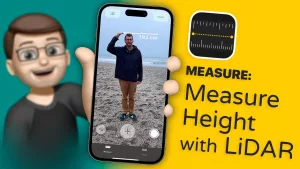




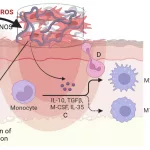

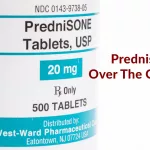


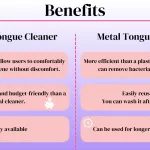

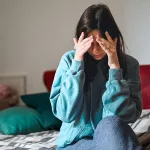


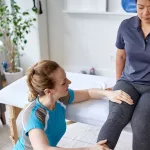
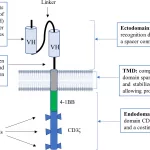
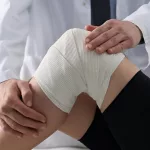


Leave a Reply
You must be logged in to post a comment.